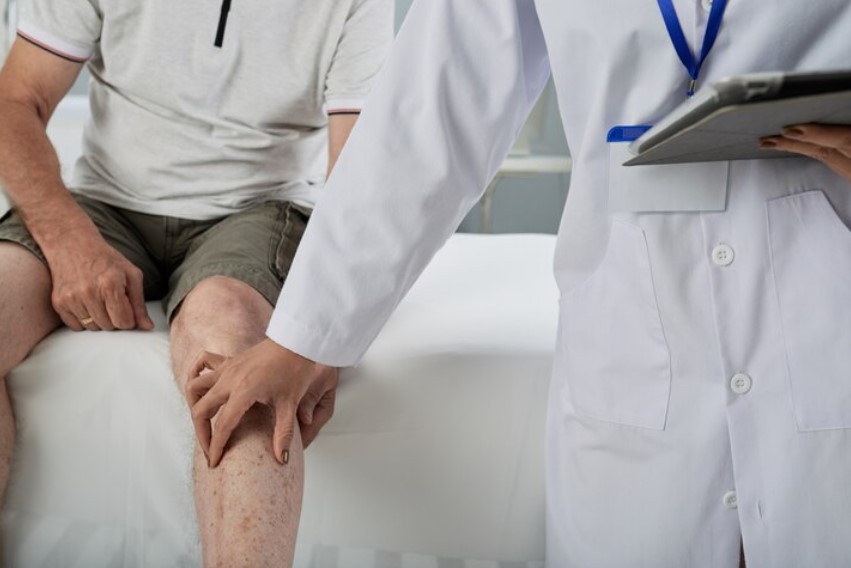12
Aug 2025
A Thousand Knees, A Lifetime of Movement
Published in News on August 12, 2025

At Port Macquarie Private Hospital, two orthopaedic surgeons have each crossed an impressive milestone—completing 1,000 total knee replacement surgeries. This remarkable achievement reflects years of dedicated service to the Port Macquarie community and surrounding regions.
Two Pillars of Progress
Dr Mark Baker, a familiar face in the region, has been delivering orthopaedic care for three decades. His 1,000 knee replacements sit alongside more than 10,000 other orthopaedic procedures, spanning joint reconstructions, arthritis treatments, and even hand surgeries. “I feel honoured to have been part of the teams that have helped so many patients in our community,” he reflected.
Dr Rupert Snyman celebrated the milestone with modest gratitude. Though pleased, his attention remained focused on patients: “It’s been a privilege to help so many local people regain their mobility and enjoy life with less pain.” He added that “modern knee replacement surgery,” buoyed by technological advances, continues to improve recovery consistency and patient experience.
Excellence Through Innovation
Both surgeons credit medical technology as a key driver behind their success. Originally developed decades ago, joint replacement techniques have advanced significantly. Today’s procedures integrate precision alignment, patient-specific planning, and minimally invasive approaches, encouraging faster healing and better functional outcomes. According to Dr Snyman, these improvements have elevated care standards at their local hospital.
Such technological evolution resonates with trends seen at institutions nationwide, where robotic-assisted surgeries—including systems like MAKO or ROSA—have begun to redefine joint replacement practices.
A Community Empowered
The impact of these thousands of surgeries stretches far beyond the operating theatre. By restoring mobility, reducing chronic pain, and renewing independence, Dr Baker and Dr Snyman have helped hundreds reclaim active, fulfilling lives. Better movement means stronger livelihoods—whether they’re working, playing with grandchildren, or simply walking with ease.
Hospital CEO Moira Finch extended her congratulations, underscoring how the milestone exemplifies “exceptional skill, dedication, and commitment to improving patients’ mobility and quality of life.” She commended both surgeons as pillars of patient-centred care and highlighted their invaluable role at Port Macquarie Private Hospital.
Reflections and Future Momentum
For Dr Baker, reaching 1,000 knee replacements is a moment of deep reflection. After years of honing surgical skill and building trusting patient relationships, he appreciates how far both he and the field have come, and how much further they can go.
Dr Snyman, too, looks forward: “I’ve really enjoyed the first 1,000 knees and look forward to helping many more patients.” His optimism rests on the belief that ongoing advances in orthopaedic techniques will continue boosting patient outcomes.
As they step into the next 1,000, their combined legacy stands as a testament to the region’s access to exceptional healthcare—close to home, drawing on excellence, and delivering tangible results.
The Lasting Legacy of 1,000 Knees
Reaching such a milestone isn’t just a quantitative feat—it’s a human one. Behind each number lies a story of recovery, hope, and renewed strength. Patients who thought walking unaided would be a fading memory now stroll, traverse trails, and engage in everyday joys once lost. Many of these journeys begin in the comfort and support of nearby hospital accommodation, where patients and their loved ones can stay close during treatment and rehabilitation—making recovery both physically and emotionally more manageable.
In essence, the achievements of Dr Baker and Dr Snyman are far more than medical data—they're chapters in countless lives restored, families reconnected, and communities empowered.









